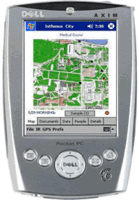Dewey on Activity
Inspired by John's blog, I tried to read Dewey again and found that many sociocultural learning theories prosperous today may be rooted in Dewey. The following quotes are from Dewey's "The School and Social Progress."
“Personalities which became effective in action were bred and tested in the medium of action. Again, we cannot overlook the importance for educational purposes of the close and intimate acquaintance got with nature at first hand, with real things and materials, with the actual processes of their manipulation, and the knowledge of their social necessities and uses. In all this there was continual training of observation, of ingenuity, constructive imagination, of logical thought, and of the sense of reality acquired through first-hand contact with actualities.” (p.8)
--Does it suggest that expertise is developed ONLY in practice where action takes central stage?
“Verbal memory can be trained in committing tasks, a certain discipline of the reasoning powers can be acquired through lessons in science and mathematics; but, after all, this is somewhat remote and shadowy compared with the training of attention and of judgment that is acquired in having to do things with a real motive behind and a real outcome ahead.” (p.8)
--this is pretty much what Bruner suggested in his “Knowing as Doing” (1996)
“Yet there is a real problem: how shall we retain these advantages, and yet introduce into the school something representing the other side of life—occupations which exact personal responsibilities and which train the child in relation to the physical realities of life?”
--Does it also suggest that technologies such as AR games represent for the opportunity to bridge the gap between school and actual social practice since kids will not have a chance to be involved in real social practice in most cases? If professional practice is the way we wish to teach, how may we utilize AR to achieve that goal?
“Personalities which became effective in action were bred and tested in the medium of action. Again, we cannot overlook the importance for educational purposes of the close and intimate acquaintance got with nature at first hand, with real things and materials, with the actual processes of their manipulation, and the knowledge of their social necessities and uses. In all this there was continual training of observation, of ingenuity, constructive imagination, of logical thought, and of the sense of reality acquired through first-hand contact with actualities.” (p.8)
--Does it suggest that expertise is developed ONLY in practice where action takes central stage?
“Verbal memory can be trained in committing tasks, a certain discipline of the reasoning powers can be acquired through lessons in science and mathematics; but, after all, this is somewhat remote and shadowy compared with the training of attention and of judgment that is acquired in having to do things with a real motive behind and a real outcome ahead.” (p.8)
--this is pretty much what Bruner suggested in his “Knowing as Doing” (1996)
“Yet there is a real problem: how shall we retain these advantages, and yet introduce into the school something representing the other side of life—occupations which exact personal responsibilities and which train the child in relation to the physical realities of life?”
--Does it also suggest that technologies such as AR games represent for the opportunity to bridge the gap between school and actual social practice since kids will not have a chance to be involved in real social practice in most cases? If professional practice is the way we wish to teach, how may we utilize AR to achieve that goal?

0 Comments:
Post a Comment
<< Home